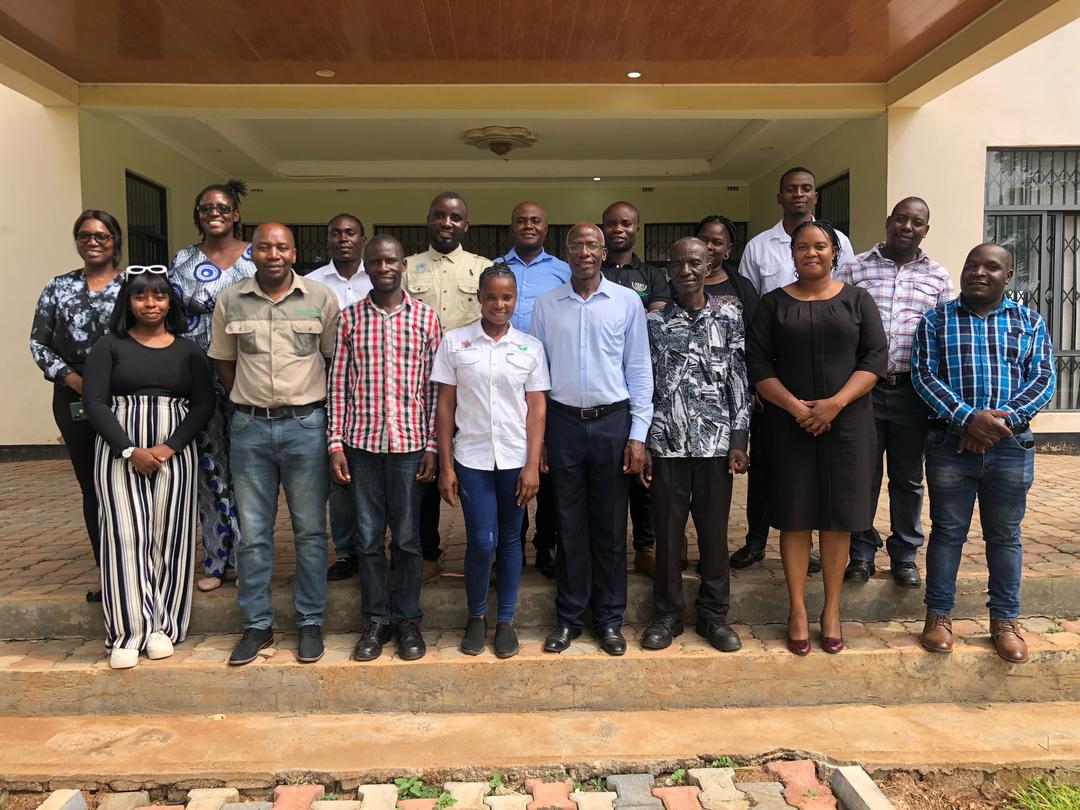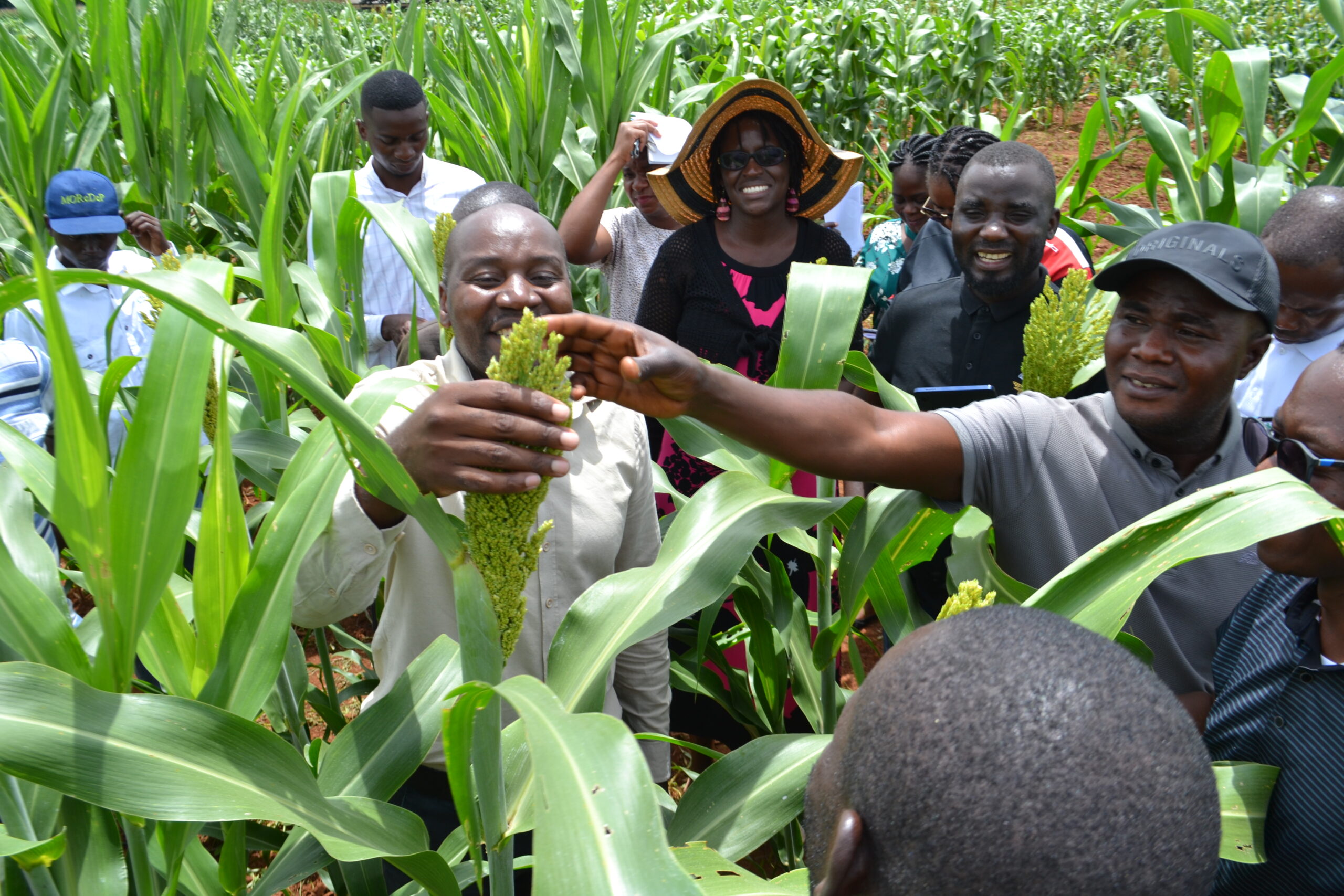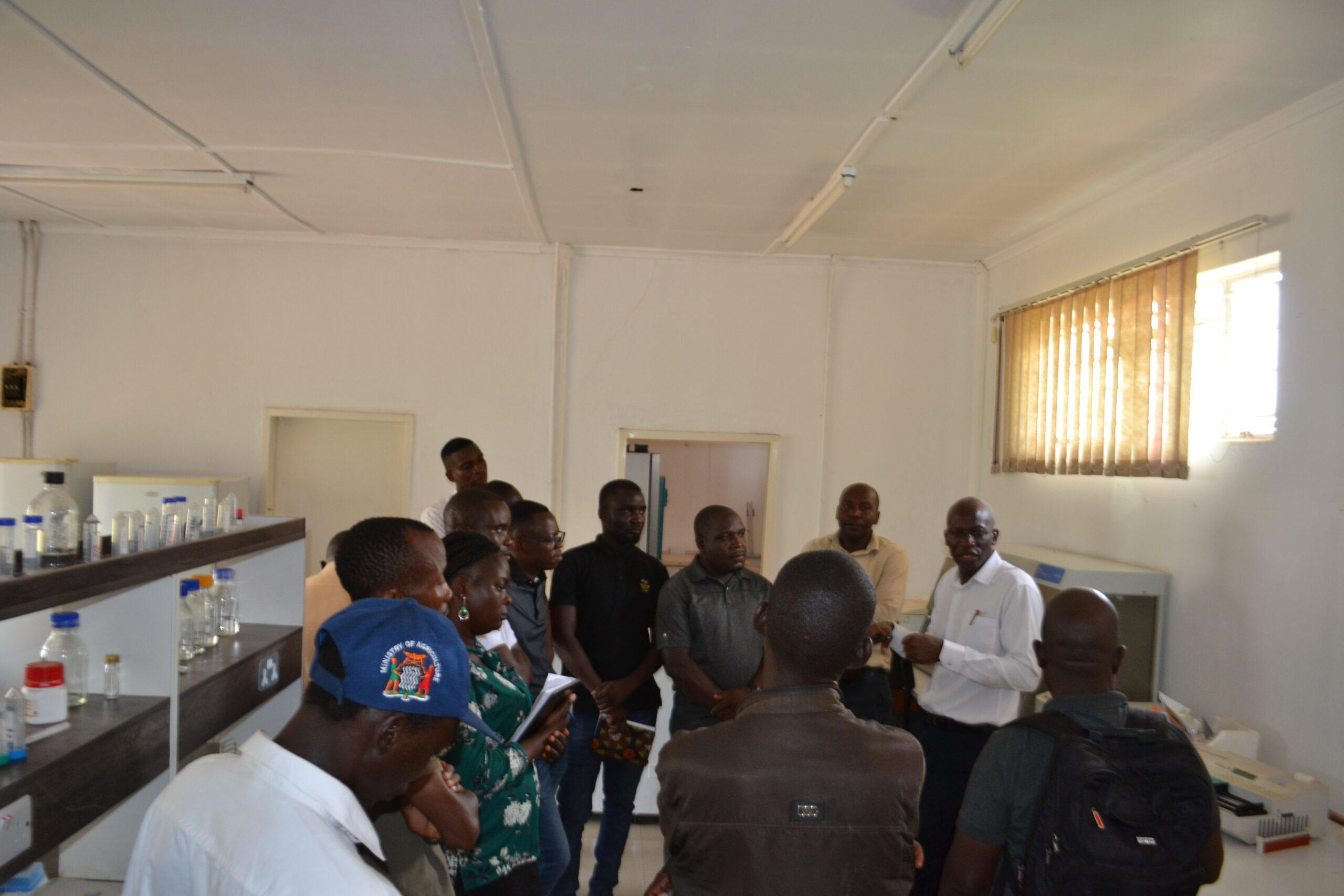The Zambia Agriculture Research Institute (ZARI) recently conducted a comprehensive retraining program for trialists, led by Lloyd Mbulwe, Lead Breeder, with support from CIMMYT. The initiative was driven by a growing demand for enhanced capacity in field book management, DNA sampling, and quality control measures.

The well-attended training brought together triallists and assistant breeders from across the country, representing various research programs, including sorghum, finger millet, and pearl millet. The platform offered a valuable opportunity to harmonize data collection procedures, ensuring consistency and accuracy in research efforts collected.
The training covered the full spectra of trial management- from planting to harvest– alongside robust guidance on data collection. Participants also received instruction on data analysis and interpretation, enabling them to extract meaningful insights from their field data. A focused session on DNA leaf sample preparation for fingerprinting emphasized the importance of accuracy and integrity in genetic research. The training introduced key concepts in quality assurance and quality control (QAQC), essential for upholding rigorous scientific standards.

A key highlight of the training was the practical session on field book management. Participants had the opportunity to work with the field book, identifying challenges and opportunities associated with its use in the field. This hands-on experience enabled them to develop a deeper understanding of the field book’s capabilities and limitations, ultimately sharpening their field-based data skills enhancing their field-based data skills.
To complement the classroom and practical sessions, participants also visited the Plant Pathology Laboratory at ZARI Headquarters, where they gained insights into disease diagnosis, sample preparation, and QAQC procedures used in laboratory settings. The visit reinforced the importance of accurate field data and proper sample handling to support robust laboratory analysis and research outcomes.

The training aimed to equip triallists with the necessary skills and knowledge to collect high-quality data, manage DNA samples effectively, and apply QAQC measures to ensure the reliability of research outcomes.
By enhancing the capacity of trial lists, ZARI aims to improve the overall quality of research outputs-ultimately contributing to the development of improved crop varieties and enhanced agricultural productivity in Zambia.
 Nutrition, health and food security
Nutrition, health and food security 